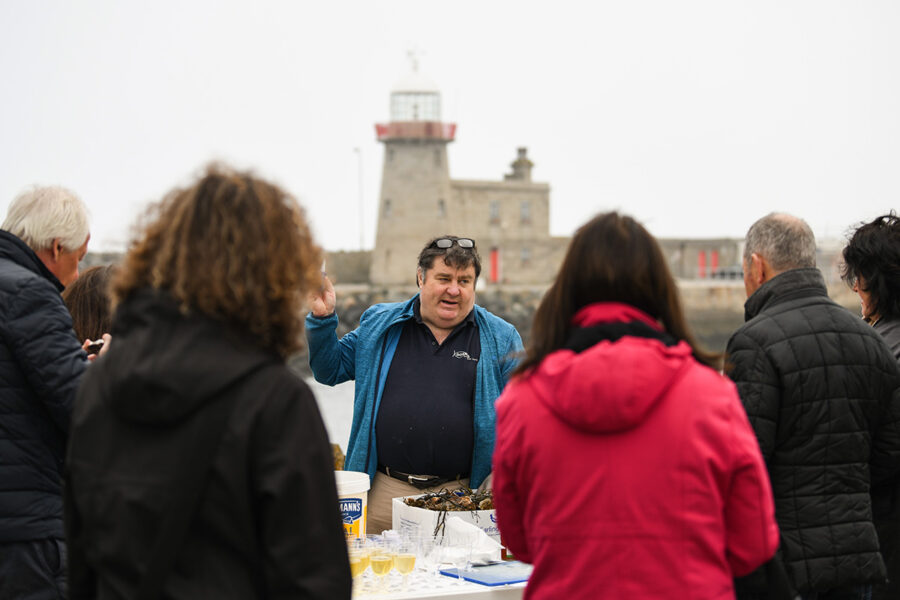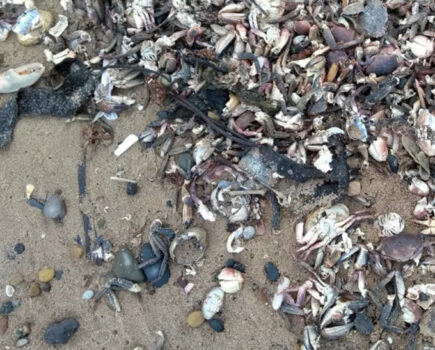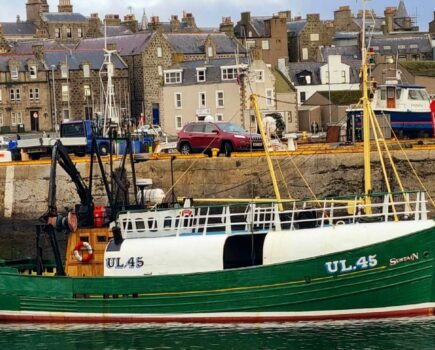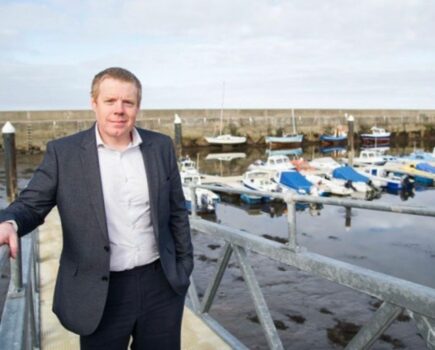The well-known North Dublin fishing family, the Dorans of Howth, have initiated a new venture that aims to offer tourists a unique insight into the Irish seafood industry, reports Lorna Siggins.
The family business is also converting the old ice plant into a maritime museum as part of the Howth School of Fish project.
Former fisherman Seán Doran (pictured above), son of the late Michael Doran, said visitors to the fishing harbour will be able to learn about species and quotas, different types of gear, and the political background to the challenges facing the Irish industry.
“We used to use this building as a repair workshop for the trawlers when we had them,” Seán Doran said of the old ice plant where the museum will be based.
His father had 12 trawlers at one point, and a bell from one of those vessels – the Silver Harvest – hangs from a rafter.
The family no longer owns any vessels, but runs several successful restaurants in what is now a busy tourist hub.
“We have models of trawlers, compasses and old equipment that is now no longer used that we hope to display,” said Seán Doran.
“We have plotters and navigational aids and pre- computerised equipment. You can’t see the television at home for old radars and compasses!”
He said that his mother, Muriel Doran, who is still involved in the business, will be very relieved to have some more space in her house.
“We want to try and give everyone a feel for the industry,” he explained. “So we don’t want PowerPoint and screen presentations – we want people to be able to touch and see for themselves, like the old lobster pots, the fish boxes, and how they were specially designed to keep the fish fresh.
“We have a box from the Father Murphy which is half a century old. Even a simple thing like a fish box tells a story. “In the old days, it was on your knees on deck to pick the fish by hand into different boxes, and nowadays there are conveyor belts and hoppers and stainless steel workbenches, and down into the fish hold for immediate refrigeration – which is the way it should be for better quality, of course,” he said.
Visitors will also be able to try knot-tying exercises, which are ‘always good fun’, he said, and there will be oyster shucking, instructions in fish boning, and tastings of locally sourced fish.
Seán Doran said that the school also aims to invite chefs and cookery groups to meet retired local fishermen – many of whom have ‘great stories to tell’.
School groups will be invited to learn about fishing, aquaculture and the history of the area, including nearby shipwrecks such as the RMS Tayleur, which was lost off Lambay Island on her maiden voyage to Australia in 1854.
Weather permitting, half-day and full-day programmes will offer boat trips out to the nearby island of Ireland’s Eye, habitat of cormorants, puffins, seals and hidden caves.
Tracey Floyd, co-founder of the Howth School of Fish, said: “It is more important now than ever to keep the history, stories and skills from the Irish fishing industry alive.
“In a world where protecting biodiversity and climate action are high on all our agendas, this blend of aquamarine education and tourism is unique not only in Ireland but also in Europe, and we are very excited to finally launch after the coronavirus pandemic halted our plans for two years.”
For more information on the Howth School of Fish, click here.
This story was taken from the latest issue of Fishing News. For more up-to-date and in-depth reports on the UK and Irish commercial fishing sector, subscribe to Fishing News here or buy the latest single issue for just £3.30 here.








